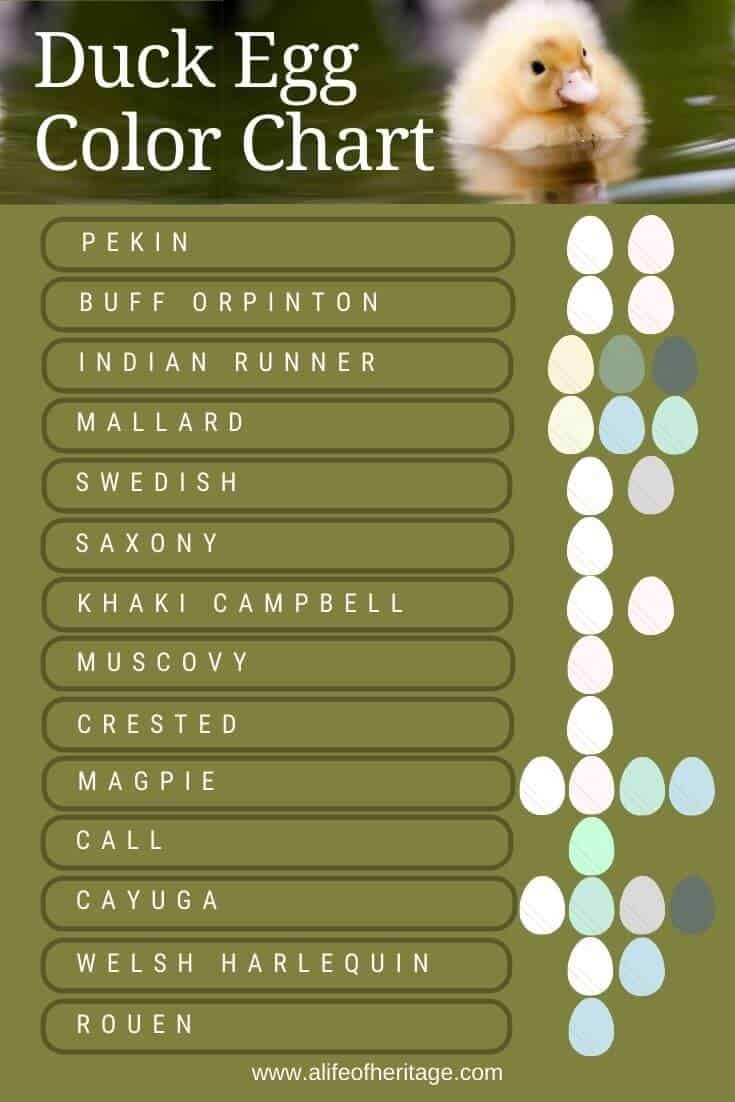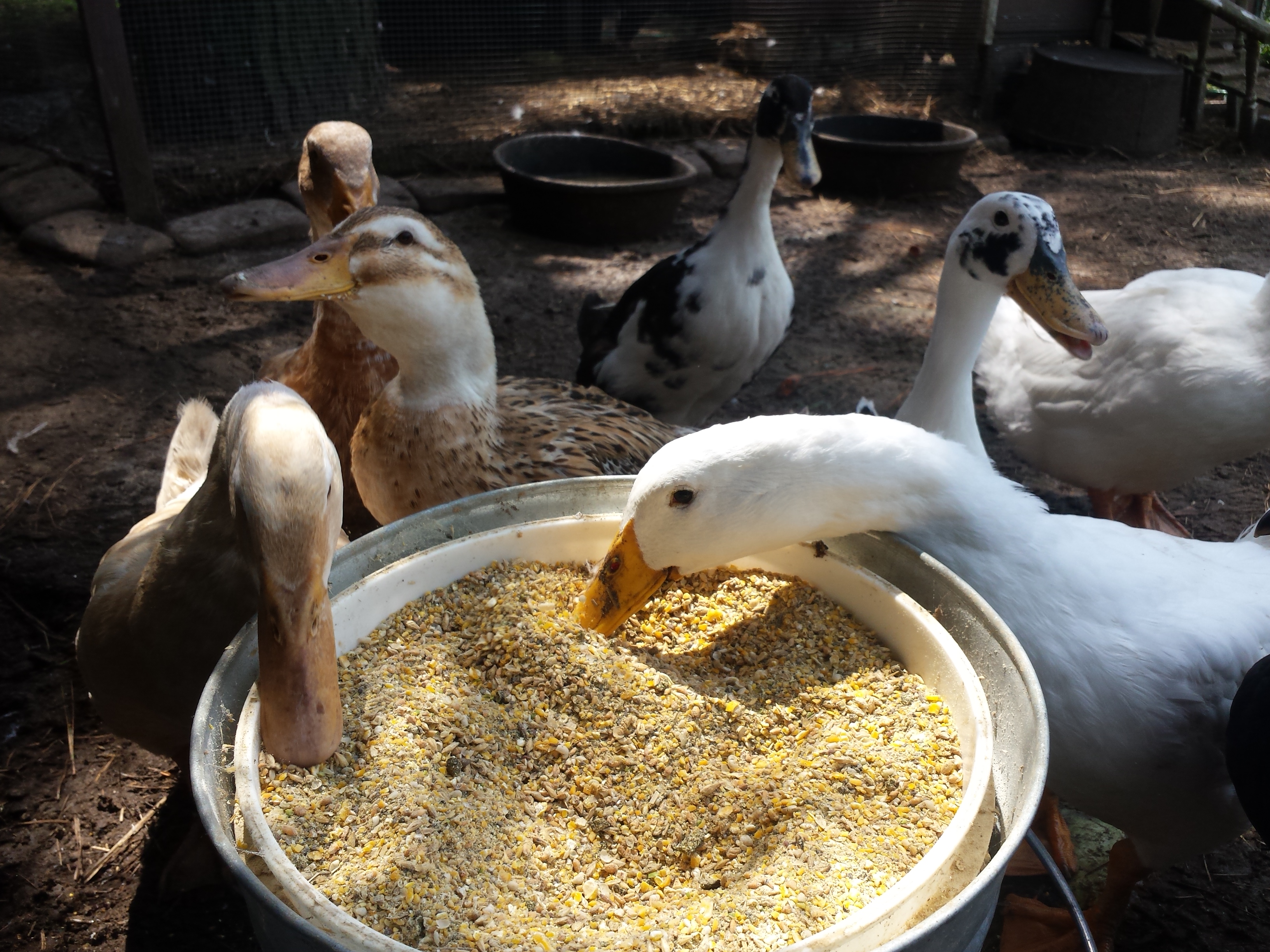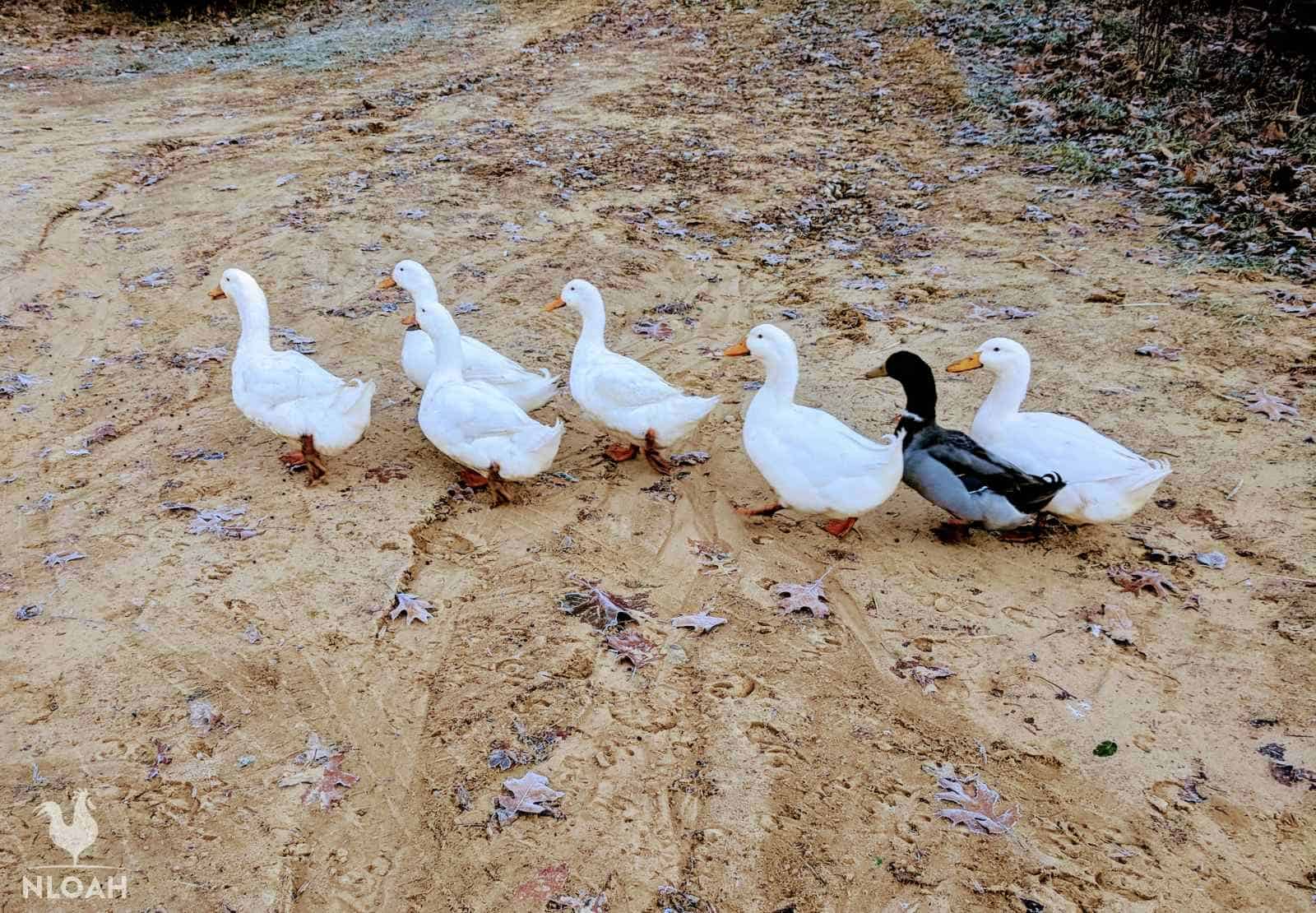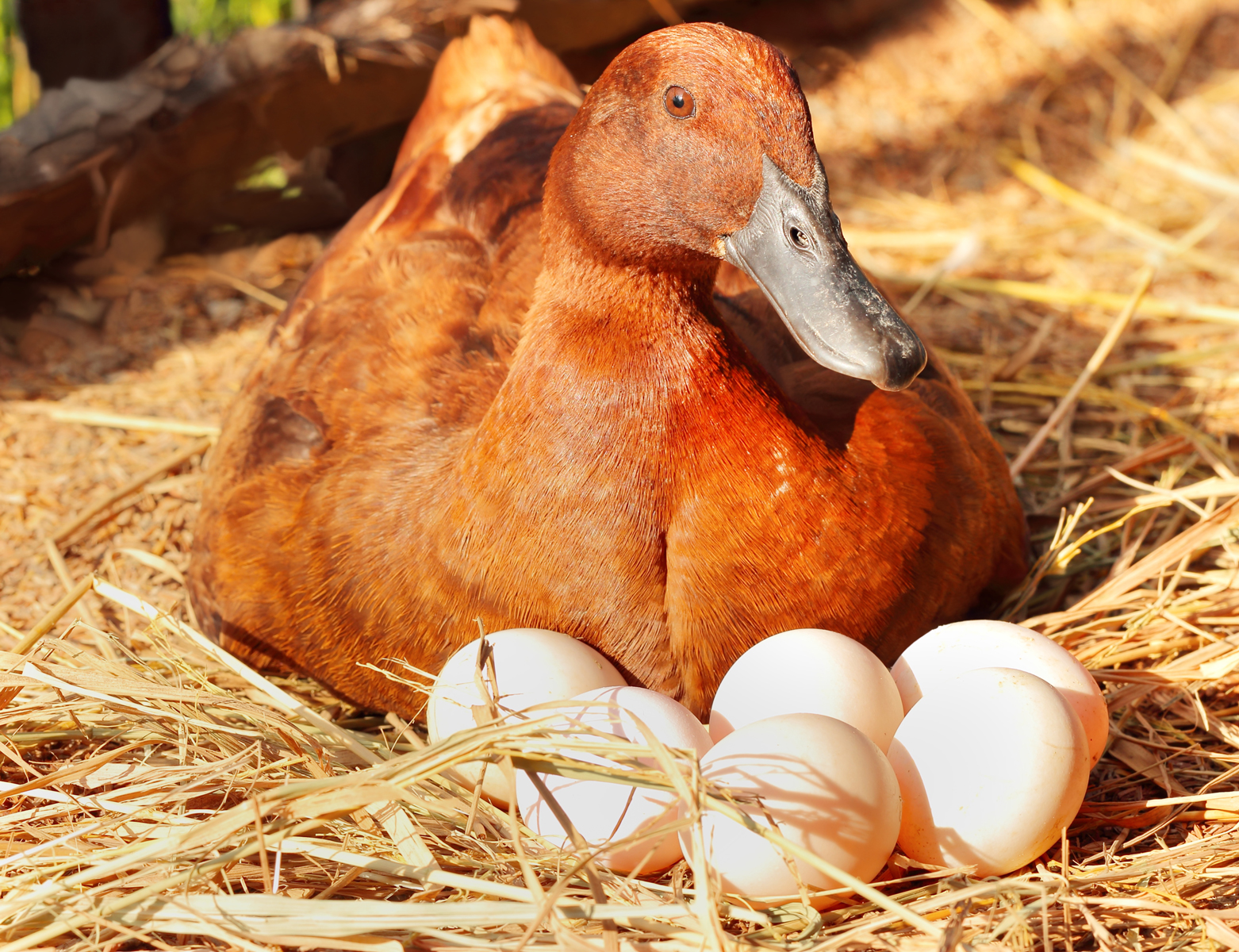When it comes to poultry husbandry, understanding how ducks lay eggs is essential for keeping a healthy flock. Ducks are prolific layers, producing high numbers of eggs each year. Ducks lay eggs in an amazing array of sizes, shapes, and colors. This guide will provide you with the information you need to understand the basics of duck egg production and how to care for your flock. Learn how ducks lay eggs and the best practices for keeping your ducks healthy and productive.
Types of Ducks

Ducks are generally classified into two main groups: domestic ducks and wild ducks. Domestic ducks are those that have been bred for egg production and can be found in farms, petting zoos and private households. Wild ducks, on the other hand, are those that live in their natural habitats and are not bred for egg production.
Domestic ducks are further divided into two categories: egg-laying ducks and meat ducks. Egg-laying ducks are bred for their ability to produce eggs consistently throughout the year. Some of the most common breeds of egg-laying ducks are Pekin, Mallard, Cayuga, Runner and Saxony. Meat ducks, on the other hand, are bred for their meat quality and include breeds such as Pekin, Muscovy, Crested and Rouen.
Wild ducks are the birds that are found in their natural habitats, such as lakes, rivers and wetlands. They are not typically bred for egg production and are more difficult to identify than domestic ducks. Some of the most commonly found wild ducks include Mallard, Pintail, Wigeon, Gadwall, Shoveler and Teal.
How many years do ducks lay eggs? Domestic ducks typically start laying eggs at around five months of age and can lay eggs for up to six years. Wild ducks, however, typically lay eggs for only one year.
Duck Egg Laying Biology

Ducks lay eggs in an average of 28-day cycles. The first three weeks of a duck’s egg-laying cycle is dedicated to the production of yolk. During this period, the duck’s body produces the yolk, which is then transferred to the oviduct. The fourth week is the egg-laying phase, when the eggshell is formed around the yolk and albumen.
- Ovulation: The duck’s ovary produces a mature yolk, which is then released into the oviduct.
- Fertilization: Ducks typically lay unfertilized eggs, but can be fertilized if a male duck is present.
- Formation of Shell: The eggshell is formed from calcium carbonate and other minerals deposited in layers around the yolk.
- Lay the Egg: A duck’s egg-laying cycle culminates in the egg being laid.
The size, color, and shape of a duck’s egg vary by breed. Generally, duck eggs are larger than chicken eggs and have a harder shell. Ducks typically lay one egg a day, but some breeds can lay up to two eggs a day.
The egg-laying cycle of ducks can be interrupted if they experience stress, or if their diet or environment is inadequate. It is important to ensure that ducks are provided with a balanced diet and a stress-free environment in order to ensure healthy egg production.
How Many Eggs Do Ducks Lay a Year?

Ducks lay eggs throughout the year and can lay up to 150 eggs a year. Ducks typically lay between 8-12 eggs per clutch and can have multiple clutches each year.
Duck egg production is dependent on the breed and age of the bird:
- Younger ducks lay more eggs than older ducks
- Larger breeds lay more eggs than smaller breeds
- Egg-laying ducks lay more eggs than non-egg laying ducks
In the summer months, ducks lay more eggs than in the winter months. Ducks can also lay eggs during the winter months, but the egg production is lower and the eggs may be smaller. In general, ducks lay eggs for about 10-12 months out of the year.
Ducks need a nutrient-rich diet to produce eggs. A balanced diet of grains, greens, and protein sources is necessary for healthy egg production. Ducks also need adequate space to move around and access to clean water to stay healthy and lay eggs.
When it comes to duck laying eggs, it’s important to remember that ducks lay fewer eggs as they age and in the winter months. However, with a balanced diet and adequate space and water, ducks can lay up to 150 eggs a year.
Factors Affecting How Many Eggs Ducks Lay
Age: Ducks reach their peak egg-laying age when they are between 1 and 3 years old. After this, their laying rate will start to decline.
Season: Duck egg production is largely determined by the length of daylight and the availability of food. Ducks will lay more eggs during the spring and summer months when there is more available daylight and food.
Nutrition: The quality and quantity of a duck’s diet can have a significant effect on its egg production. Ducks will lay more eggs if they are given a balanced diet that provides them with the necessary nutrients for optimal egg production.
Environment: Ducks will lay more eggs if their environment is suitable for egg production. Ducks need access to clean water, good ventilation, and plenty of room to move around.
Genetics: Different breeds of ducks have different egg-laying capabilities. For instance, some breeds will lay more eggs than others, and some breeds are better at producing fertile eggs than others.
Health: Ducks that are in good health will lay more eggs than those that are not. Poor health can cause a drop in egg production, so it’s important to keep ducks in good health by providing them with a nutritious diet, clean environment, and plenty of exercise.
Stress: Stress can have a significant effect on how many eggs ducks lay. Ducks that experience high levels of stress will lay fewer eggs than those that are not.
How Many Eggs Do Ducks Lay a Year? The number of eggs a duck lays in a year will vary depending on the factors listed above. Generally, a healthy duck that is in the right environment and given a balanced diet will lay around 150 to 200 eggs a year.
What Do Ducks Eat?

Ducks are omnivores and can feed on a variety of items. Their diet includes:
- Grains such as wheat, barley, oats, and corn.
- Insects like grasshoppers, beetles, and mosquito larvae.
- Aquatic life such as fish, small crustaceans, and mollusks.
- Plants like grasses, sedges, and water plants.
- Fruits and vegetables like apples, grapes, carrots, and squash.
Duck laying eggs requires a balanced diet for healthy egg production. Therefore, ducks should be provided with a variety of foods from the above list. This will help ensure that they get the proper nutrition for optimal egg production.
What Is the Best Environment for Ducks to Lay Eggs?

Ducks typically prefer a safe, clean, and comfortable environment for laying eggs. To create the best environment for your duck to lay eggs, consider the following:
- Nesting Boxes: Provide a nesting box for your duck to lay her eggs in. Make sure it is in a quiet, private area and is placed away from any drafty areas. Also, make sure the box is large enough for your duck to fit comfortably.
- Temperature: Ducks need a warm, comfortable temperature in order to lay eggs. An ideal temperature range is between 65 and 80 degrees Fahrenheit.
- Light: Ducks need 14-16 hours of light each day in order to lay eggs. If your duck is not getting adequate light, consider investing in a light timer or a light bulb to help her regulate her egg-laying cycle.
- Food and Water: Ducks need access to fresh food and water at all times. A balanced diet that is high in protein and other nutrients is essential for ducks to produce high-quality eggs.
- Cleanliness: Ducks need a clean environment in order to lay eggs. Make sure the nesting box is cleaned regularly and the surrounding area is kept clean and free from debris.
By providing your duck with a safe, comfortable environment for laying eggs, you can help her lay eggs more efficiently. To ensure your duck is laying eggs at her peak potential, make sure to provide her with the proper food, water, temperature, and light. With the right environment, your duck will be able to lay eggs with ease and bring you a bountiful harvest of duck eggs in no time!
Duck Egg Laying Techniques
Ducks prefer to lay their eggs in the morning and can lay up to 12 eggs per clutch. Ducks lay eggs in nests, typically with a mixture of grass, straw, and other materials. Ducks may also lay eggs on the ground if they can’t find a suitable nesting site.
To achieve optimal egg production:
- Ensure the ducks have access to plenty of food and water.
- Provide nesting boxes for the ducks.
- Keep the nesting boxes clean and dry.
- Keep the nesting boxes in a quiet, dimly lit area.
- Provide plenty of grass and hay for the ducks to make their nests.
Ducks can lay anywhere from 6-12 eggs per clutch, and may lay up to 200 eggs per year. However, the number of eggs laid depends on several factors, such as the breed of duck, the age of the duck, and the environment in which they live. It is important to remember that ducks need plenty of food and water to achieve optimal egg production.
Frequently Asked Questions
How often do ducks lay eggs?
Most ducks lay eggs between March and October, with a peak between May and July. Ducks usually lay eggs every one or two days, but this varies depending on the breed. Ducks typically lay about 10–15 eggs per clutch and three to four clutches per year.
- Pekin ducks usually lay eggs every one or two days during the peak season.
- Mallard ducks usually lay eggs every two to three days during the peak season.
- Muscovy ducks usually lay eggs every three to four days during the peak season.
- Rouen ducks usually lay eggs every three to five days during the peak season.
- Khaki Campbell ducks usually lay eggs every two days during the peak season.
In the off-season, ducks typically lay eggs less frequently, if at all. Ducks may also go through a period of molting during which time they stop laying eggs.
What should I do if a duck is not laying eggs?
If your duck is not laying eggs, it is important to assess the possible causes. Common reasons include health issues, age, stress, diet, or environmental factors. If health issues are suspected, take your duck to a veterinarian for a check-up. If age or environmental factors are to blame, consider making changes, such as providing more heat or adding more nesting boxes. Ensure your duck has adequate nutrition and is not stressed. If all else fails, you may need to consider artificial insemination to achieve egg production.
How can I tell if a duck egg is fertile?
- Weight: Fertile eggs tend to be heavier than infertile eggs.
- Shape: Fertile eggs often have pointed ends and are slightly oval in shape.
- Color: Fertile eggs tend to be darker than infertile eggs.
- Shell: Fertile eggs have a thicker, harder shell than infertile eggs.
- Yolk: The yolk of a fertile egg will be larger and will have a bulls-eye pattern in the center.
- Candling: Candling is a process of shining a light through the egg to check for signs of fertility. It can help to detect dark spots, which indicate a developing embryo.
Are there any special considerations for caring for ducks during the egg-laying season?
Nutrition: Ducks require more energy during the egg-laying season, so they should be given a high-energy diet that contains plenty of protein and fat. Ducks should also be given additional vitamins and minerals to supplement their diet.
Environment: Ducks should be kept in a safe, clean, and ventilated environment with plenty of room to move around. The area should be free from rodents and other potential predators.
Nesting Boxes: Ducks should have access to nesting boxes where they can lay their eggs. These boxes should be made of a sturdy material such as wood and should be large enough to accommodate the duck’s entire body.
Temperature: Ducks need a warm, comfortable environment in order to lay eggs. The temperature should not be too hot or too cold.
Water: Ducks should have access to clean, fresh water. This is important for keeping them hydrated and healthy.
Light: Ducks require a certain amount of light in order to lay eggs. The light should be dim, not too bright or too dark.
Predators: Ducks should be kept away from potential predators, such as cats, dogs, and raccoons. The area should be secure and free from potential threats.
What is the optimal temperature for incubating Duck Eggs?
Incubating Duck Eggs requires a temperature of 99.5-101.5°F (37.5-38.5°C). The temperature should be consistent and monitored closely during the incubation process. A humidity level of 55-60% should be maintained during the incubation period.
Ideal Conditions for incubating Duck Eggs include:
- Temperature: 99.5-101.5°F (37.5-38.5°C)
- Humidity: 55-60%
- Frequent Turning: Every 3-4 hours
- Ventilation: Checked regularly
It is important to maintain a constant temperature and humidity level throughout the incubation process. If the temperature or humidity levels fluctuate, the eggs may not hatch. Additionally, it is important to turn the eggs every 3-4 hours to ensure proper development. Finally, make sure to check the ventilation often to ensure the eggs are getting enough oxygen.
Conclusion
When it comes to raising chickens, understanding how ducks lay eggs is essential. Duck eggs are a nutrient-rich source of food and can provide a farmer with a steady stream of income. With the right tools, knowledge, and care, duck husbandry can be a rewarding and successful venture for any farmer.
